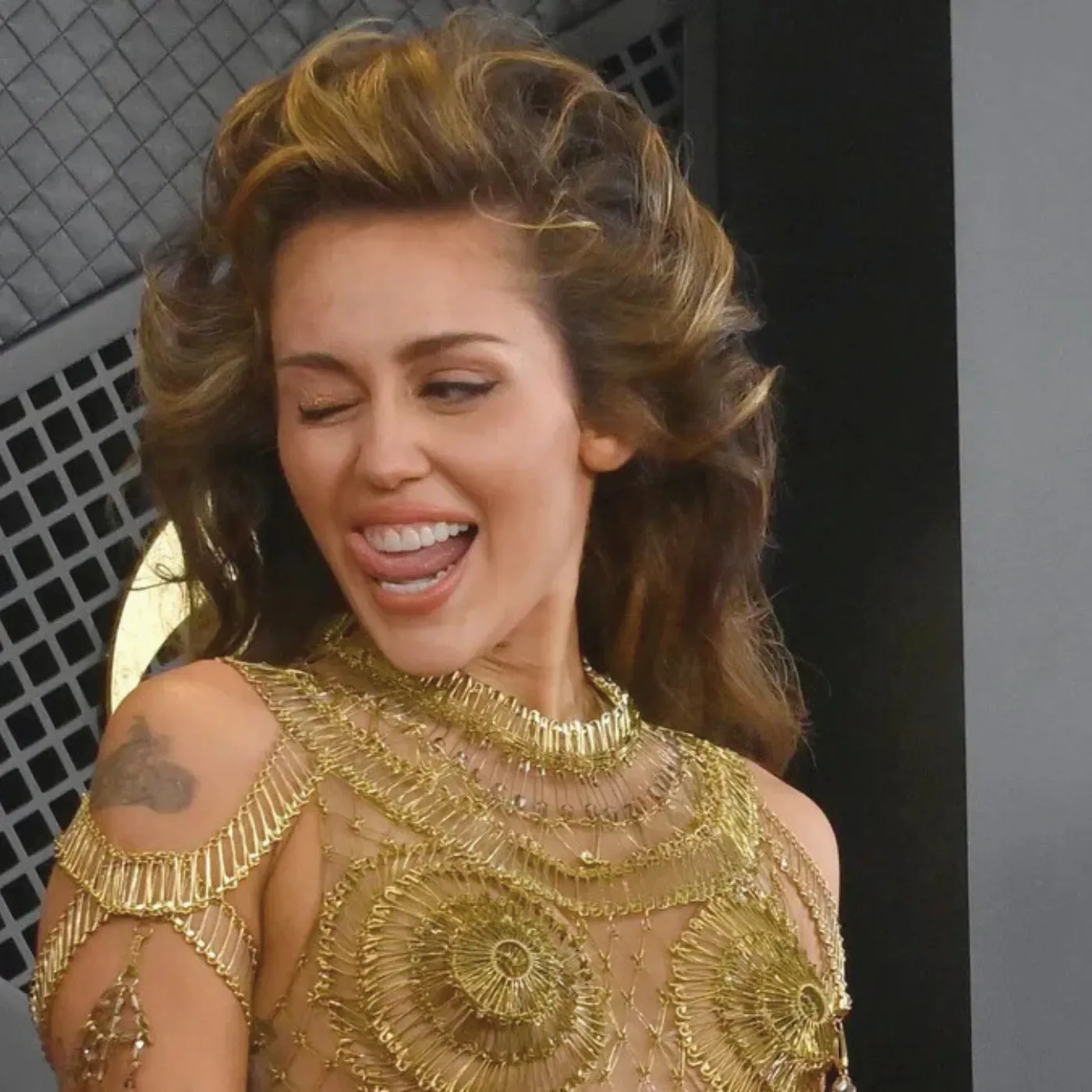

Miley Cyrus Just Crowned Beyoncé and Dolly But Refused to Put on the Same Tiara
Miley Cyrus is handing out respect like wildflowers, but with a twist — she’s giving Beyoncé and Dolly Parton their flowers without asking for the crown herself. In an era obsessed with celebrity rankings and the endless search for the “queen” of pop culture, Miley’s candid remarks both honor and differentiate her from two iconic legends. The way she framed it—“She’s Queen B. A mother, goddess to the world, whereas I always felt like a friend to the world and my fandom, because we grew upr—sent ripples across social media and made headlines everywhere.

This is not your typical celebrity compliment. It’s a masterclass in how to pay homage while simultaneously staking your own claim in a noisy, crowded entertainment world.
Miley Refuses the Throne — She Wants to Be the Girl Next Door
Miley’s self-positioning is unique and refreshing. In a culture where many stars fight to be “the queen,” Miley actively refuses the title. She consciously rejects the throne Beyoncé occupies and Dolly’s legendary blueprint, instead embracing the role of “the friend” who grew up with her fans, walking beside them rather than towering above.
This is a seismic shift in celebrity culture.
Beyoncé isn’t just a superstar. She’s the embodiment of power, grace, motherhood, and divinity to millions worldwide. She’s the queen who demands silence and reverence. Dolly Parton is the warm, timeless force of authenticity and storytelling, a musical matriarch with decades of influence.
Miley, however, isn’t trying to fit into these archetypes. She’s the raw, messy, loud, and sometimes chaotic companion you see yourself in.
That kind of honesty is rare at this level, and it’s exactly why fans feel so connected to her.
Divided Fans: Humility or Clever Strategy?
Social media exploded with reactions. On Facebook and TikTok, users debated whether Miley’s comments were genuine humility or a savvy move to dodge direct competition with Beyoncé and Dolly.
Some fans praised Miley for her self-awareness and for resisting the celebrity power play. “She’s real, and she knows that,” wrote one commenter. “It’s refreshing to see someone at her level admit she’s not about the crown.”
Others viewed it differently. They speculated that Miley might be downplaying her own accomplishments to stay relatable or even to stir controversy subtly. “She’s playing the humble card but knows exactly how much weight she carries,” argued another fan.
Regardless of the angle, the conversation drove massive engagement. This kind of viral tension—admiration mixed with skepticism—is exactly what the Facebook algorithm craves.
Miley’s Journey: From Child Star to Cultural Phenomenon
Understanding why Miley embraces the “friend” identity requires looking back at her journey.
Starting as Hannah Montana, she was literally the girl next door for a generation of kids growing up in the late 2000s and early 2010s. Her evolution from Disney darling to boundary-pushing pop star wasn’t smooth or quiet—it was loud, public, and sometimes controversial. From Bangerz to Plastic Hearts to the recent Flowers, Miley has never been shy about shedding skins and reinventing herself in real time.
Miley’s claim of being “a friend to the world” is more than a catchy phrase—it’s a reflection of a two-decade-long relationship with her audience, who’ve witnessed her highs and lows, triumphs and stumbles.
She’s not just a star. She’s a cultural icon—a personality that grew up with her fans, inviting them into her world, warts and all.

The Contrast: The Goddess vs. The Girl Next Door
This moment with Miley, Beyoncé, and Dolly highlights a deeper cultural shift in celebrity worship.
For decades, fans worshipped stars as untouchable gods and goddesses. Their perfection was expected, their flaws hidden.
Today, that model is breaking down.
Audiences crave authenticity, vulnerability, and connection. They want stars who laugh loudly, make mistakes publicly, and reveal their messy human sides.
Beyoncé is the divine queen—elevated, majestic, and commanding. Miley is the messy, lovable friend—flawed but genuine.
Both approaches wield power, but in entirely different ways.
Rejecting the Celebrity Blueprint
What makes Miley’s stance so disruptive is her rejection of the usual celebrity roadmap.
Many stars emulate their predecessors, trying to match or surpass the success of icons like Beyoncé and Dolly by chasing perfection, grandeur, and mythic status.
But Miley isn’t doing that.
She embraces imperfection and raw emotion, presenting herself as real and relatable rather than untouchable or “goddess-like.”
Her refusal to adopt a “queen” persona sends a powerful message: you don’t have to follow the established rules to be influential and beloved.
Her career is a testament to the power of authenticity in an industry often obsessed with image and control.
Giving Respect Without Seeking Rivalry
It’s rare in celebrity culture to see someone celebrate their peers without immediately inviting comparison or competition.
Miley gives flowers to Beyoncé and Dolly without positioning herself as their rival. She calls Beyoncé a goddess and Dolly a legend—and then confidently claims her own unique place as “the friend.”
This kind of non-competitive respect is quietly revolutionary in a world where celebrity feuds and comparisons dominate headlines.
Rather than tearing down or challenging the “queens,” Miley carves out a new space for herself—a space where friendship and connection trump rivalry and crown-wearing.
Why This Moment Resonates Now
The entertainment landscape is changing.
Fans are demanding more transparency, vulnerability, and realness from their idols. The traditional celebrity mystique is fading.
Miley’s honest self-positioning taps perfectly into this shift, offering a refreshing alternative to the untouchable “queen” archetype.
Her ability to stay grounded while still commanding attention is reshaping what it means to be a superstar in the 2020s.
Three Icons, Three Paths, One Legacy
The connection between Beyoncé, Dolly Parton, and Miley Cyrus isn’t just about music or fame. It’s about legacy.
Each woman defines her legacy differently:
Beyoncé reigns with power and grace, commanding reverence.
Dolly embodies warmth, authenticity, and storytelling that transcends generations.
Miley blazes a trail of chaotic honesty, refusing to fit any mold and embracing her imperfections openly.
Together, they represent different facets of what it means to be an icon today.
Social Media Frenzy: Passion and Polarization
Predictably, this candid comparison ignited fierce debates on Facebook and beyond.
Some hailed Miley for her refreshing humility and honesty.
Others questioned whether her approach was a clever PR move to dodge the impossible task of measuring up to Beyoncé and Dolly.
This kind of passionate, divided reaction is exactly the kind of content that fuels shares, comments, and viral engagement on social media platforms.
The Bigger Picture: Why Miley’s Move Is Genius
At face value, refusing to claim the “queen” title might seem like stepping back.
But in the long game of celebrity branding, it’s a masterstroke.
By positioning herself as “the friend” rather than “the queen,” Miley makes herself approachable and relatable, inviting fans to feel connected rather than intimidated.
In a world oversaturated with perfection and posturing, Miley’s imperfect, rebellious authenticity stands out.
She doesn’t need a crown because she already has something rarer: your attention and your emotional investment.
Final Thoughts: Miley’s Power Lies in Her Relatability
At the end of the day, the difference between Miley and other icons comes down to one thing:
She refuses to be untouchable.
Instead, she’s a mirror for her fans’ own messy, complicated lives.
She’s the friend who cheers you on, stumbles beside you, and grows up with you.
And in today’s celebrity climate, that might just be the most powerful stance of all.




















Post Comment